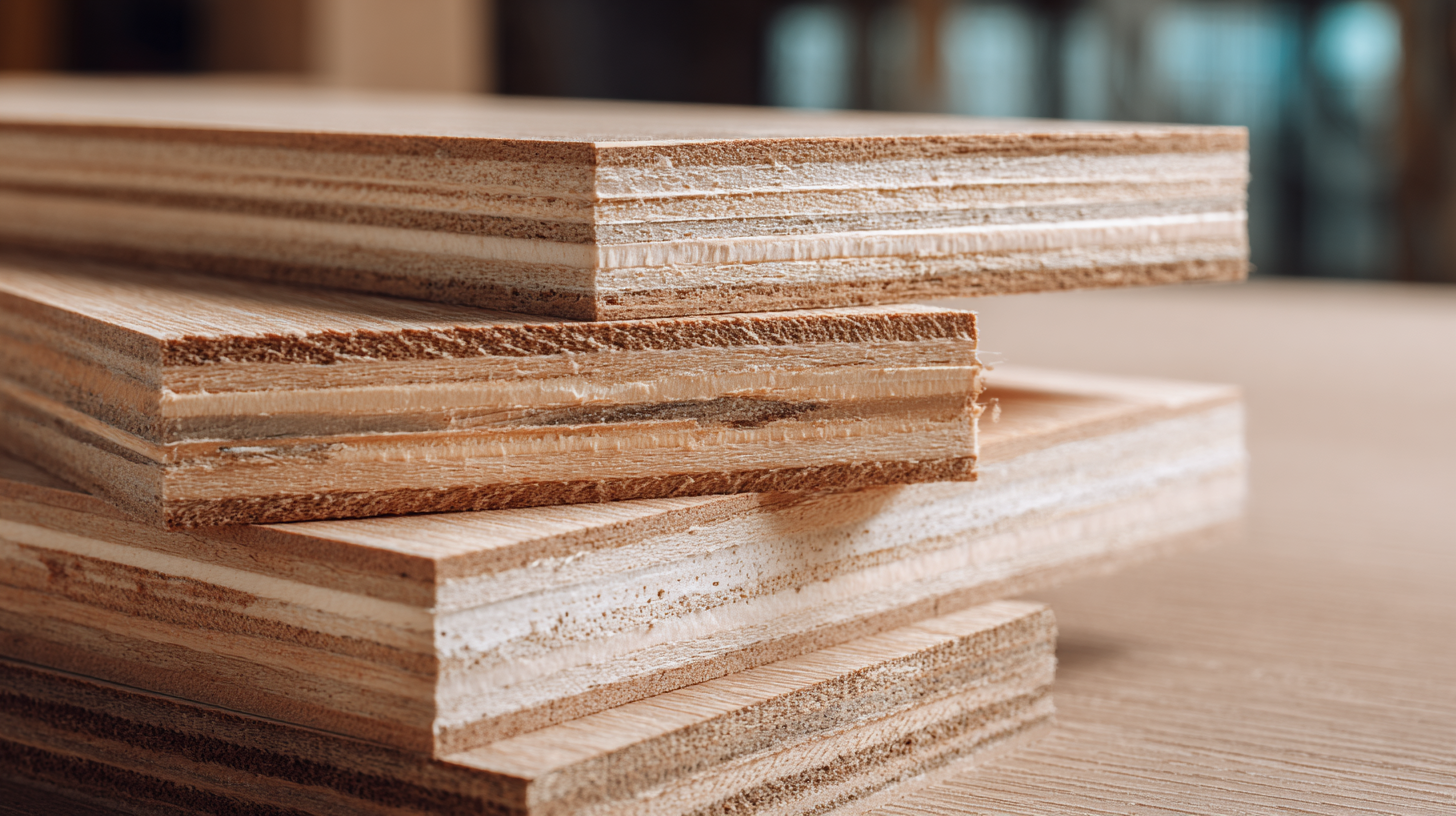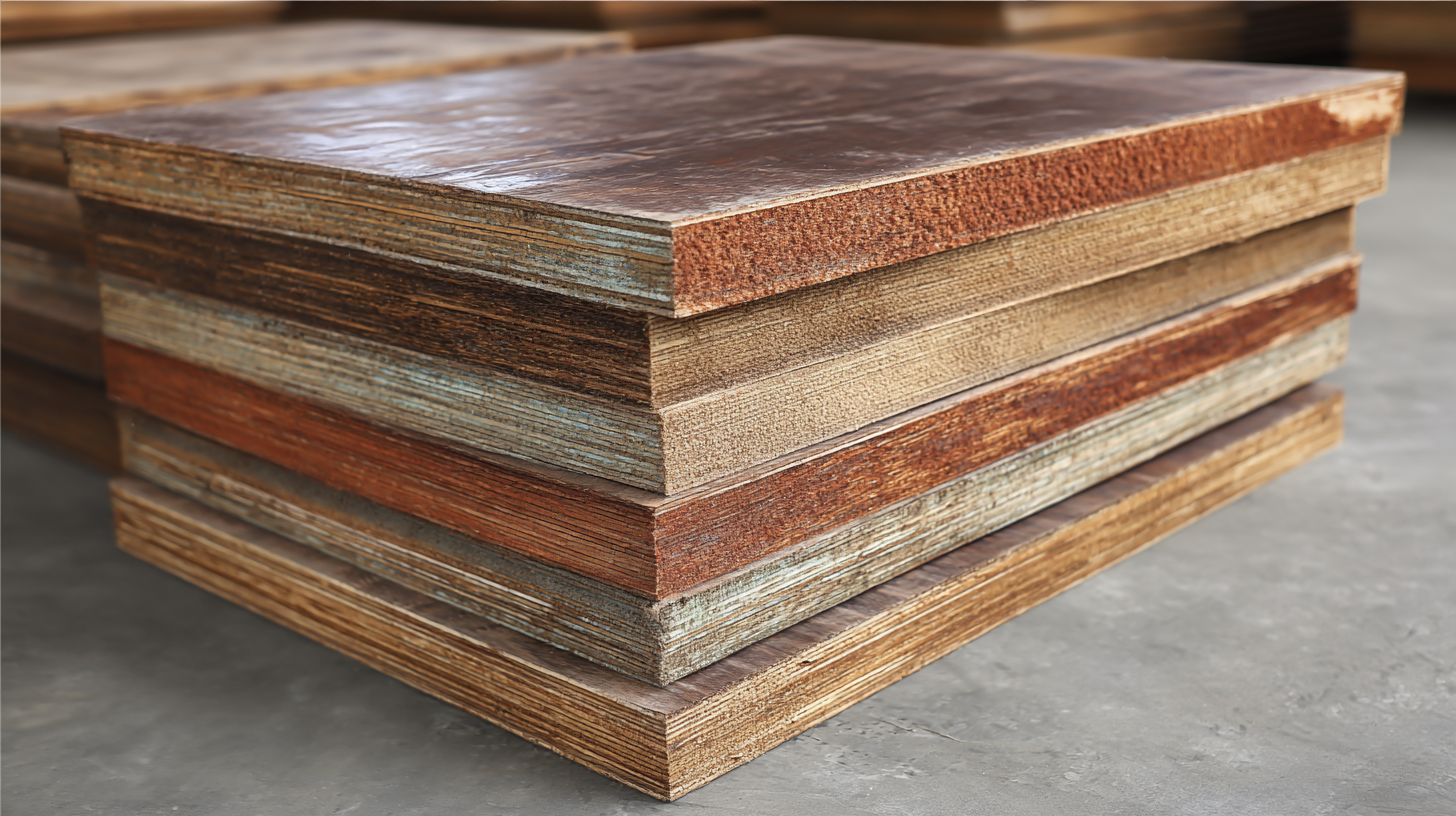Navigating the complexities of import and export certifications is crucial for businesses dealing in Structural Plywood, especially in a global marketplace dominated by innovative manufacturing practices. According to a recent report by Allied Market Research, the global structural plywood market is projected to reach $16.74 billion by 2025, growing at a CAGR of 5.2%. This demand highlights the importance of adhering to international standards and certifications that ensure quality and safety. As manufacturers and exporters, understanding these regulations not only facilitates seamless trade but also enhances competitiveness and reputation in an increasingly regulated environment. In this comprehensive guide, we will explore the essential certifications required for Structural Plywood, offering insights to help businesses navigate this intricate landscape and maintain compliance while maximizing export potential.

When it comes to the plywood industry, understanding import and export certifications is crucial for ensuring compliance and quality control. These certifications serve as a guarantee that the plywood meets specific standards, including environmental regulations and safety requirements. For manufacturers and suppliers, possessing the right certifications can enhance credibility and open doors in international markets. Customers increasingly seek assurance that the products they purchase are sustainably sourced and produced, making these certifications not just a regulatory hurdle but a competitive advantage.
Navigating the complex landscape of import and export certifications requires a comprehensive understanding of various standards that differ across regions. For instance, the Forest Stewardship Council (FSC) certification emphasizes responsible forest management practices, which is gaining traction globally. By obtaining such certifications, businesses can demonstrate their commitment to sustainability and ethical practices, appealing to conscious consumers. Furthermore, compliance with local and international standards helps mitigate risks associated with fines, legal challenges, and disruption in trade. Therefore, companies engaged in the plywood trade must prioritize understanding and obtaining the necessary certifications to thrive in a competitive marketplace.
When dealing with structural plywood, understanding the key certifications is crucial for compliance and quality assurance. Certifications such as the American Plywood Association (APA) standards and the Forest Stewardship Council (FSC) certification ensure that plywood products meet specific safety and environmental criteria. The APA, for instance, mandates rigorous testing for durability and structural integrity, while the FSC focuses on sustainable forestry practices. These certifications not only guarantee the quality of the plywood but also build trust with consumers and other stakeholders.
Tip: Always check for certification labels when purchasing plywood. This simple step can save you from potential compliance issues and ensure you are investing in high-quality products.
Another important certification is the International Standards Organization (ISO) certification. ISO standards set forth guidelines for effective quality management systems, which can help manufacturers improve their processes and produce better products. Having ISO certification not only aids in international trade by ensuring products meet global standards but also enhances the company's reputation in the market.
Tip: Partner with certified suppliers to streamline your import/export process. This can significantly reduce the risk of encountering issues related to non-compliance with international regulations.

Navigating the complex landscape of import and export certifications for structural plywood requires a keen understanding of the regulatory bodies involved and their specific requirements. Various agencies, including the International Organization for Standardization (ISO) and the American Plywood Association (APA), set stringent standards governing the quality, safety, and environmental impact of plywood products. According to the 2023 Plywood Market Report, compliance with these standards not only ensures product acceptance in international markets but also significantly enhances buyer confidence, leading to a projected growth rate of 4.3% in global plywood trade over the next five years.

Tip: Always check for regional regulations that may vary by country; for instance, the U.S. Forest Service mandates specific certifications for imported plywood to combat illegal logging practices. Familiarizing yourself with these local adjustments can save time and resources during the certification process.
Additionally, keeping abreast of evolving environmental regulations—such as the EU Timber Regulation (EUTR)—is crucial. This regulation aims to prevent illegal timber entering the European market, and compliance can be a deciding factor for many consumers. Engaging with reliable certification bodies to validate your products can provide you with a competitive edge in meeting these stringent requirements.
Tip: Invest in regular training for your team on compliance mechanisms and updates in regulations. Knowledgeable staff can streamline the certification process, ensuring adherence to both local and international guidelines effectively.
Obtaining import and export certifications for structural plywood can be a daunting task due to various challenges that manufacturers and traders face. One of the most common hurdles is navigating the complex regulatory requirements that differ from one country to another. Each nation has its own standards for quality, safety, and environmental impact, making it imperative for businesses to stay updated with both local and international regulations. This variability can lead to confusion and increased administrative burden, especially for small to medium-sized enterprises that may not have dedicated legal teams.
Moreover, the certification process itself can be lengthy and expensive. Companies often encounter delays due to incomplete documentation or failures in meeting the stringent testing protocols set by certification bodies. This can result in potential loss of market opportunities, as businesses may struggle to get their products to market in a timely manner. Furthermore, the need for third-party inspections can add to the costs and complexity, making it essential for exporters and importers to invest time and resources in understanding and preparing for these challenges well in advance.
Navigating the complexities of import and export certifications for structural plywood is essential for manufacturers looking to expand internationally. With the increasing demand for high-quality plywood around the globe, ensuring compliance with local regulations is crucial. Recent industry reports indicate that over 60% of delays in shipping plywood arise from non-compliance with certification processes. Therefore, understanding best practices for these certifications can streamline operations and significantly reduce time to market.
Tips: To enhance compliance efforts, consider investing in dedicated software solutions that track certification status in real time. Additionally, partnering with local experts who understand regional regulations can provide valuable insights and aid in navigating the certification landscape.
Furthermore, as seen in the automotive industry, the challenge of “invisible barriers” stemming from data compliance and testing certifications can pose significant hurdles. With exports steadily increasing, companies must prioritize obtaining necessary certifications to minimize disruptions. Harnessing the power of technology and continuously updating knowledge on regulatory changes will not only ensure smoother certification processes but also open new avenues for growth in competitive markets.
